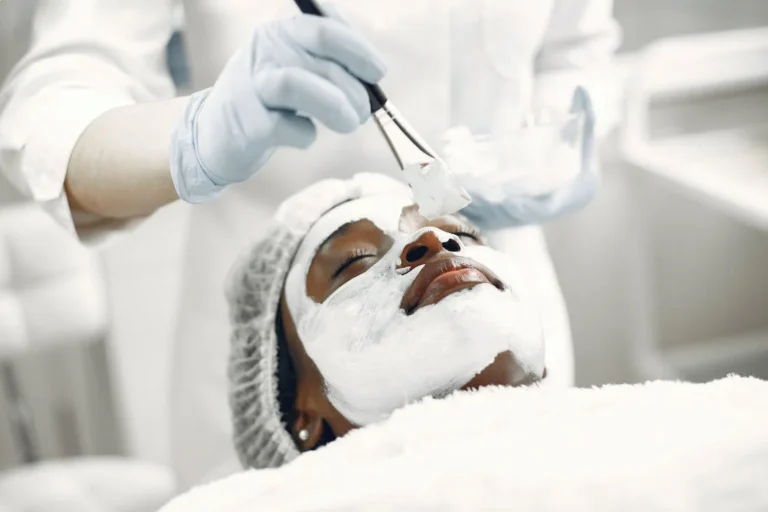LASIK: Cost, Procedure, Your Easy Guide
LASIK, or Laser-Assisted In Situ Keratomileusis, is a revolutionary solution for those eager to break free from glasses and contact lenses. This sought-after refractive surgery meticulously reshapes the cornea to correct vision problems, offering an effective alternative to traditional eyewear.
If you’re exploring options for an eye operation to remove spectacles, laser eye surgery emerges as a top choice. This guide will delve into the intricacies of LASIK surgery, providing valuable insights into the procedure and associated costs.
Whether you’re in Chhattisgarh seeking the best surgery for spectacle removal or simply considering the most effective method for eliminating the need for glasses, this comprehensive guide aims to equip you with the information needed to make an informed decision.
LASIK Surgery

LASIK, which stands for Laser-Assisted In Situ Keratomileusis, is a precise surgery that uses laser technology to reshape the cornea and improve vision. This eye operation is designed to reduce reliance on glasses or contact lenses.
It’s a popular choice for addressing common vision issues like nearsightedness (myopia), farsightedness (hyperopia), and astigmatism.
LASIK could be the ideal solution if you’re considering an eye operation for removing spectacles or searching for the best specs removal surgery. In Chhattisgarh, you can explore options for the best surgery to remove spectacles, utilizing advanced laser technology for optimal results.
Understanding LASIK
LASIK surgery is known for its efficiency, taking only 10 to 15 minutes per eye. This quick procedure has become a fast and effective way to correct vision. Importantly, it’s an outpatient surgery, meaning there’s no need for a hospital stay.
Those considering eye operation for removing spectacles or searching for the best specs removal surgery can appreciate LASIK’s convenience, allowing patients to undergo the procedure and return home on the same day. LASIK is a top choice for quick and effective spectacle removal in Chhattisgarh.
Overview of Cost
When considering LASIK surgery, understanding the associated costs is a crucial aspect that varies based on several factors, including location, the specific type of LASIK procedure chosen, and the surgeon’s expertise. Below is a comprehensive overview of the approximate costs for different LASIK options in India:
1. Conventional LASIK
This is the most budget-friendly LASIK option.
Average cost: ₹40,500 to ₹85,500.
The procedure involves using a microkeratome to create the corneal flap, providing effective vision correction at a more accessible price point.
2. SBK LASIK (Sub-Bowman’s Keratomileusis)
SBK LASIK is a more advanced version of the procedure.
Cost: ₹45,000 to ₹1,45,000.
This option utilizes a finer laser for flap creation, offering enhanced precision compared to conventional LASIK.
3. Femto LASIK (Femtosecond LASIK)
Femto LASIK is characterized by high precision through a femtosecond laser.
Cost: ₹80,000 to ₹1,30,500.
This procedure stands out for its bladeless flap creation, contributing to a more controlled and accurate corneal reshaping.
4. SMILE LASIK (Small Incision Lenticule Extraction)
SMILE LASIK is a minimally invasive alternative.
Cost: ₹80,000 to ₹1,30,500.
This procedure does not require a corneal flap; instead, it reshapes the cornea through a small incision, potentially reducing recovery time.
5. Contoura LASIK
Contoura LASIK offers a customized treatment based on corneal topography.
Cost: ₹95,000 to ₹1,05,000.
This advanced option ensures a personalized approach, addressing specific irregularities in the cornea for optimal visual outcomes.
Factors affecting LASIK Surgery cost
1. Location
The prices for LASIK surgery can be different in various cities like Delhi, Bangalore, or Hyderabad. It depends on where you are.
2. Type of LASIK
There are different ways to do LASIK, and each method can cost differently. Some methods may cost more or less than others.
3. Surgeon’s Expertise
If the LASIK surgeon has much experience, they charge more for their skills and knowledge.
4. Equipment and Technology
The kind of machines and technology used during LASIK can affect the cost. More advanced technology may mean a higher price.
5. Insurance Coverage
Usually, regular health insurance plans don’t cover LASIK because it’s seen as a choice, not a necessity. Some unique insurance plans cover part of the cost, but it’s uncommon.
LASIK Surgery Procedure
Before LASIK Surgery
Candidate Evaluation
Eye doctors assess suitability by examining pupil size, corneal shape and thickness, and refractive errors like myopia or astigmatism.
Guidelines for Surgery
Guidelines are provided, such as refraining from wearing contact lenses for a specific period before surgery.
Initial Tests
Comprehensive tests measure corneal thickness, eye pressure, corneal mapping, and pupil dilation with retina evaluation to ensure a thorough understanding of the eye’s condition.
During LASIK Procedure:
Local Anesthesia
Before surgery, the surgeon administers local anesthesia or medication to ensure a pain-free experience.
Eye Positioning
The eyes are precisely positioned under the laser, and a lid speculum keeps eyelids open throughout the procedure.
Cornea Marking and Flap Creation
The surgeon uses an ink marker to mark the cornea before creating a thin flap with a microkeratome instrument.
Suction Ring
A suction ring may prevent eye movement, ensuring accuracy during the surgery.
Laser Adjustment
The surgeon adjusts the laser based on refractive needs, and patients are asked to focus on a light source.
Corneal Reshaping
The laser reshapes the corneal tissue, and the created flap is gently placed back. This entire process takes approximately 5-10 minutes per eye.
Immediately After LASIK Surgery:
Post-Surgery Sensations
Blurriness, eye pressure, and temporary burning/itching may be experienced, which is considered normal.
Resting Period
Patients are advised to rest for a short period immediately after the surgery.
Initial Vision Clarity
Vision might be initially unclear, and a sensation of dryness in the eyes is familiar.
Post-Operative Assistance
Someone should accompany the patient for the drive home.
Prescribed Eye Drops
The surgeon prescribes eye drops to prevent inflammation or infection during recovery.
Choose Your Procedure
Research LASIK: Learn about the advantages and risks of LASIK surgery. Look into reputable surgery centers and read patient testimonials.
Consultation: Schedule a meeting with a skilled LASIK surgeon to discuss your expectations and assess your eye health.
Expert Surgeon: Choose a surgeon with extensive experience, certifications, and a good reputation. Inquire about their track record and qualifications.
Advanced Technology: Ask about the clinic’s technology, ensuring they use state-of-the-art equipment for accurate measurements and precise outcomes.
Personalized Treatment: Look for clinics offering customized LASIK treatments like Wavefront-guided or Wavefront-optimized LASIK for tailored solutions to individual vision issues.
Safety Measures and Post-Op Care: Discuss infection control, sterilization, and post-operative care protocols with your surgeon. Ensure they provide detailed instructions and ongoing support for a smooth recovery.
Cost and Financing: Understand the overall cost, including preoperative evaluations and post-operative care. Inquire about insurance coverage or financing plans to make the surgery more affordable. Consider long-term savings on glasses or contact lenses.







